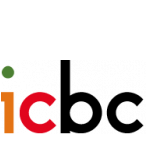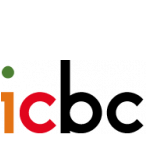Canadian Immigration Update – Spring 2017
An Update by Guberman Garson LLP Immigration Update.
Federal Budget 2017
In Budget 2017, the Government of Canada introduced its Innovation and Skills Plan, including several immigration initiatives:
- Global Skills Strategy: As announced in the fall of 2016, the Federal Government will be implementing an ambitious two-week standard for the processing of visas and work permits for high-growth Canadian companies that need to access global talent, as well as global companies that are making large investments and creating new Canadian jobs. As part of the Global Skills Strategy, Employment and Social Development Canada will launch a Global Talent Stream (“GTS”) under its Temporary Foreign Worker Program. The GTS includes expedited Labour Market Impact Assessment applications for high growth firms in any economic sector seeking unique global talent in order to scale-up and grow, as well as for eligible companies that validate the need to access highly-skilled global talent for occupations identified on a new “Skills Shortage List.” Employers will be required to develop and submit a Labour Market Benefit Plan that will track job creation, knowledge transfer, and skills and training benefits for Canadians. Immigration Refugees and Citizenship Canada will also introduce a new work permit exemption for work terms of less than 30 days in a year. It is not yet known how the number of days will be tracked or whether the days will be cumulative. The Global Skills Strategy is still in its development stages and has not yet been implemented.
- Families seeking to hire Foreign Caregivers: Budget 2017 proposes to eliminate the Labour Market Impact Assessment processing fee of $1000.00 CAD for families seeking to hire foreign caregivers for individuals with high medical needs or for families who earn less than $150,000 CAD annually.
- Reiteration of December 2016 announcement: Budget 2017 reiterates the Government’s plans to introduce stronger recruitment requirements for low-wage occupations, eliminate the four-year cumulative duration rule, extend the exemption for the cap on a number of low-wage temporary foreign workers employed in seasonal industries, and to further develop pathways to permanent residency for temporary foreign workers.
Express Entry Update
On May 4, 2017, the Comprehensive Ranking System score was the second lowest ever. Individuals in the pool with 423 points or higher were issued an invitation to apply.
Electronic Travel Authorization (eTA) for Brazil, Bulgaria & Romania
As of May 1, 2017, Brazilian citizens who have held a Canadian visa in the past 10 years or currently hold a U.S. nonimmigrant visa are now able to apply for an eTA to fly to Canada. If a Brazilian citizen is not eligible or travelling by car, bus, train or boat, a visa is still required.
As of May 1, 2017, Romanian and Bulgarian citizens are now able to apply for an eTA to fly to Canada if they have held a Canadian visa in the past 10 years or currently hold a U.S. nonimmigrant visa. . If Romanian and Bulgarian citizens are not eligible or travelling by car, bus, train or boat, a visa is still required.
As of December 1, 2017 visas for Romanians and Bulgarians will no longer be required. For the time being, work permits and study permit applications still need to be filed at a consulate.
Atlantic Immigration Pilot Program
Recently, the Atlantic Immigration Pilot was introduced for skilled workers and international student graduates seeking to permanently live in New Brunswick, Newfoundland and Labrador, Nova Scotia, and Prince Edward Island.
Applicants require a job offer from a designated Atlantic employer. An Atlantic employer must be designated in advance by the province and be offering a full-time, non-seasonal job offer to the foreign national.
The Pilot has three streams:
- Atlantic Intermediate-Skilled Program: This requires at least one year of work experience in a skill level C occupation and at least a secondary school diploma.
- Atlantic High-Skilled Program: This requires at least one year of work experience in a skill level O, A, or B occupation and at least a secondary school diploma.
- Atlantic International Graduate Program: No work experience required, but must have completed at least a two-year program from a recognized, publicly funded institution in an Atlantic province. Applications must be filed within 12 months of graduation, and the applicant must have lived in one of the Atlantic provinces for at least sixteen months in the two years before graduation.
The Program is now accepting applications, and will process up to 2000 applications in 2017.
Alberta – Pilot Project for High Wage LMIA Occupation Applications
On Wednesday, April 19, 2017, the Alberta Labour Minister Christian Gray and the Federal Labour Minister Patricia Hajdu announced the Alberta – Pilot Project. Service Canada will immediately cease processing LMIA applications for employers seeking to fill positions specified in a list of 29 occupations in Alberta for a period of two years until April 18, 2019. Affected occupations include civil and mechanical engineers, mechanists, electricians, plumbers and carpenters. Instead, the Government of Alberta’s Employer Liaison Services will help employers learn about options to hire Albertans and Canadians first.
Please note the Alberta – Pilot Project does not apply to LMIA applications in support of permanent residence (i.e. Alberta employers can still proceed with submitting LMIA applications for these occupations as long as it is in support of permanent residence). However, as a practice point we should caution employers that the recruitment efforts will likely have a higher threshold as part of that process.
Further, the Federal government will be monitoring the Alberta – Pilot Project initiative closely to see if it should be applied to other provinces in the future.
Upcoming changes to Express Entry
Express Entry is the federal application management system for the Canadian Experience Class, Federal Skilled Worker Program, Federal Skilled Trades Program, and Express Entry Provincial Nominee Programs. On June 6, 2017, the Minister of Immigration, Refugees and Citizenship Canada will implement the following changes to the Comprehensive Ranking System.
- Additional points for candidates with strong French language skills
- Additional points for candidates with strong French and English language skills
- Additional points for candidates with siblings in Canada: Additional points will be awarded to applicants with a sibling who is a Canadian citizen or permanent resident, who is 18 years or older and living in Canada.
Changes to the Ontario Immigration Nominee Program (OINP)
Currently, the following OINP Streams are open:
- Human Capital Priorities Stream
- French Speaking Skilled Worker Stream
- Entrepreneur Stream
- Corporate Stream
All other OINP Streams (International Masters and PhD Streams, Foreign Worker Stream, and International Student with a Job Offer Stream) have currently reached their registration intake limits. Applicants who have already created a registration and received a confirmation number may continue with their application within the deadline for filing.
For more details on any of the open streams, please contact your lawyer at Guberman Garson LLP.
Changes to Age of Dependency
On October 24, 2017, Immigration, Refugees and Citizenship Canada will raise the age of dependency back to “under 22 years of age”


Leave a Reply